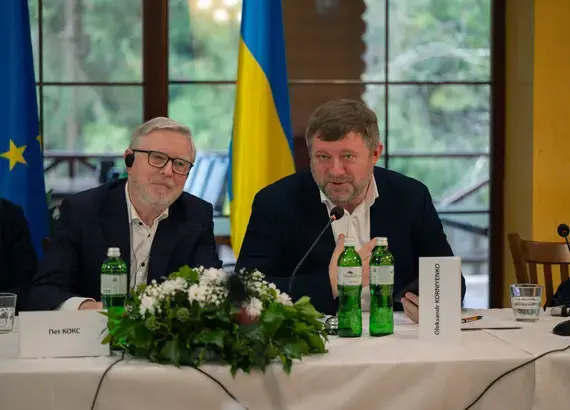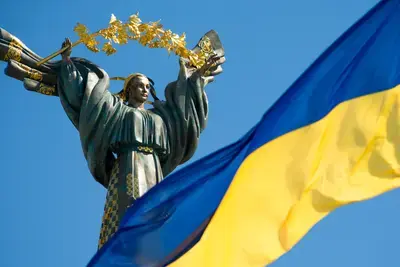
Success Story
Building Consensus Around Ukraine’s Future
At a November 10-12 consensus-building session organized by NDI and the European Parliament, Ukrainian parliamentary leaders agreed to take new steps to strengthen the rights of the political opposition and hold elections only after the war, when they can be held in competitive conditions and under the current election law. These pacts, by government and opposition, demonstrated a unified commitment to practically applying democratic practices in a prolonged wartime environment. Parliamentary factions across the political spectrum also re-committed to moving Ukraine towards European Union accession.
These events, known as the Jean Monnet Dialogues, provide opportunities for Ukrainian politicians from different factions to come together, away from the public eye, and agree on key decisions facing the nation. This iteration of the JMD held with the support of the United States Agency for International Development (USAID), the ninth since October 2016, was the second held in person since the start of the full-scale military aggression by the Russian Federation against Ukraine. Since the beginning of the JMD in Ukraine, NDI has collaborated with the European Parliament on JMDs, assisting Ukrainian parliamentarians and staff in setting the agenda, convening relevant international actors, and facilitating discussion.
The event convened more than 40 participants, including 18 MPs of the Ukrainian legislature, the Verkhovna Rada, and members of its leadership, along with members of the European Parliament and other key stakeholders. Central to the event was the role of parliament in the European ascension process and on institutional reform and stability of the Verkhovna Rada. "This is an important format,” Oleksander Korniyenko, First Deputy Speaker of the Verkhovna Rada, said. “The extraordinary conditions under which it took place demonstrates our stable and determined position to work together, seek consensus and strengthen the unity of democratic forces in Ukraine.”
The event also featured MEP Włodzimierz Cimoszewicz, Former Prime Minister of Poland and Marshall of the Sejm, who took part in the discussion. He shared his in-depth analysis of the key developments that took place before and during Poland’s EU accession negotiations and provided his recommendations on how the Ukrainian parliament can strengthen its role in this process and mobilize the capacity of the whole government.
After two days of structured discussion, Ukrainian political leaders produced several critical agreements. Specifically, the group noted the need to collaborate toward European accession, in consultation and concert with the public. Legislative leaders agreed to set an example of unity, inclusiveness, transparency and accountability for all democratic actors in Ukraine and established discrete institutional reforms to address within the Verkhovna Rada, including a code of ethics and rights for opposition groups.
"It was most encouraging to observe the wide range of consensus which emerged in the course of JMD held in Ukraine,” said Pat Cox, former President of the European Parliament and co-facilitator of the ninth JMD. “This is especially so in the context of the number of strategic consensual decisions agreed by every faction and the determination to work as united as possible for the realization of Ukraine’s Euro-Atlantic policy objectives.”
During the JMD, Ukrainian legislators also agreed to hold free and fair parliamentary and presidential elections after the war and the end of martial law, providing sufficient time to prepare based on the current electoral code. During the next Jean Monnet Dialogue, participants will continue the exchange of views on the principles that could become the cornerstones of the upcoming elections in Ukraine.
Given the critical importance of the agreements reached during the 9th round of the JMD and the challenges facing Ukraine, NDI and the leadership of the Verkhovna Rada and the European Parliament agreed to begin work on the 10th Jean Monnet Dialogue, to be held early in 2024.
NDI's engagement with this program is implemented with support from the United States Agency for International Development (USAID) through the Consortium for Elections and Political Process Strengthening (CEPPS).



